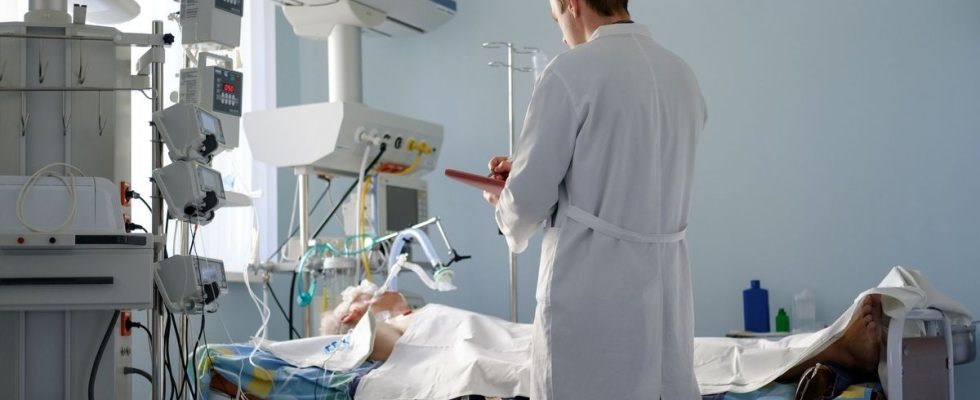Published on
Updated
Reading 2 min.
A team of researchers from Toulouse has just discovered a promising avenue for understanding and treating coma.
This is big news for all families of people in coma. A study carried out within the ToNIC research unit (Inserm/UT3) has identified a promising avenue, which could help determine the diagnosis of awakening patients.
Inflammations in the brains of patients
Coma corresponds to a state of non-response: the patient cannot be awake, his eyes remain closed and he does not react to any stimulation, even painful.
Gold, “it is a major public health problem, because it is associated with significant mortality and variable levels of recovery, often responsible for significant neurological disabilities.“, recalls Press release from Toulouse University Hospital.
This is why researchers from the ToNIC research unit (Inserm/UT3) – including Professor Stein Silva, professor at Toulouse III University and Paul Sabatier, researcher within the ToNIC and PUPH unit in intensive care at the University Hospital from Toulouse – wanted to go further in understanding coma… in particular by better predicting the awakening of patients.
To do this, they observed the brains of 17 individuals plunged into a state of deep coma using innovative in vivo molecular imaging methods carried out by positron emission imaging (PET Scan).
Result ? Toulouse researchers were able to observe for the first time the levels of brain inflammation in coma patients.
“When we compare the brains of coma patients to the brains of healthy patients, we see that the former have very high levels of inflammation.explains Benjamine Sarton, resuscitation doctor at Toulouse University Hospital, to our colleagues at 20 minutes. “And quite interestingly, we see that these inflamed regions concern specific regions that we know to be fundamental in the emergence and maintenance of a conscious state.“.
In other words: the greater the inflammation, the less likely the patients were to wake up.
More clinical trials are coming
In the future, these results could be used to predict patients’ chances of recovery after severe brain injury and “guide clinical trials aimed at modulating the immune activity of the brain, in particular through pharmacological means“, the press release further relates.
“Taken together, we believe that these results contribute to a better understanding of the mechanisms underlying coma and could contribute to improving its management. Future work will have to explore in more detail the beneficial or deleterious nature of the inflammatory processes identified and we will undoubtedly test the innovative use of immunomodulatory treatments in order to guide the brain repair of these patients, still victims of a certain “therapeutic nihilism“, concludes Professor Stein Silva, resuscitation doctor at Toulouse University Hospital and researcher in the ToNIC laboratory (Inserm/UT3).
